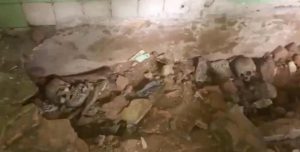The writing style is ambiguous at times too many pronouns are used and it is difficult to keep track of what the Wikipedia editors are referring to. The article also overuses passive voice, which makes the content even harder to grasp. Additionally, the article provides many detailed statistics to describe the size of the armies that fought in the War of Canudos, which makes it quite difficult to keep track of the rest of the information that is being presented.
While the article is neutral in tone, it seems to make claims that are not supported by any evidence. For instance, it claims that Canudos’ “spiritual leader and towering figurehead, Antonio Conselheiro, had died on September 22, probably of dysentery and malnutrition provoked by fasting for penance” without referring to any credible source that would support this piece of information.
The article over-represents the misery and poverty in which the people of Canudos lived, but fails to address the characteristics that would have pushed the villagers to fight with Antonio Conselheiro. That is, the article fails to provide any background information on the ideological reasons and beliefs that may have allowed Counselheiro to find supporters in the settlement of Canudos.
All of the links in the bibliography and the references sections of the article work, but only two of them provide access to the content the source in question. The rest of the links only link to Wikipedia pages that provide general descriptions of the sources that are cited within the article. Therefore, it is impossible to check the accuracy of claims that are made in the article unless a physical or an e-copy of the source is obtained.
Most of the sources that are cited in the article are in Spanish, which, added to their inaccessibility, made it impossible for me to check whether the article conforms to the claims that are made in the sources that are cited. However, the talk section suggests that the article seems to rely heavily, and almost exclusively, on a single work of fiction that was written about the War of Canudos. This undermines the credibility of the claims that are made in the article not only because works of fiction do not, by definition, conform to reality, but also because diversifying sources is necessary to avoid biases and the reproduction of misleading information. Furthermore, the body of the article exhibits the label “[citation needed]” twice, which casts even more doubt on the credibility of the piece as a whole. And while some peer-reviewed sources are included in the biography, they are not referred to anywhere in the article itself, which means that the article never references a “credible” source directly and explicitly.
Most of the sources date back to the 20thcentury, which leads me to believe that it may be interesting to incorporate information from more recent sources. Additionally, it would be interesting to add information on the villagers’ ideology and beliefs that led to rally under Counselheiro, race, gender, class differences and involvement, and the role that the catholic church played in the debacle.
The talk section first blames the article for not addressing how the War of Canudos was a “monarchist rebellion.” The author of this comment states that “Antonio Counselheiro blamed the rich landowner who once owned slaves for overthrowing the monarch who kept the people under their grasp,” which points to a piece of information that seems essential to the understanding of the motives lying Counselheiro’s rebellion. Another Wikipedia user suggests incorporating more direct citations rather than relying on a bibliographic summary and underlines the article’s overreliance on a work of fiction. A third Wikipedia user suggests merging a Wikipedia article titled Canudos with the article on the War of Canudos given that the former mostly talks about the history of the War rather than the town itself. A fourth Wikipedia user suggests addressing the catholic church’s involvement in the War. Finally, a fifth Wikipedia user addresses a resolved issue which concerned the use of the words “fanatics” to refer to the people of Canudos. The problem with using these terms, said Wikipedia user claims, was that it constituted “an unsubstantiated value judgment that coincides with the government and media propaganda used during the period concerned to justify the government’s actions.”
The article is within the scope of WikiProject Brazil and is rated as B-class on the project’s quality scale. The article is also within the scope of the military history WikiProject and is rated as C-class on this project’s quality scale.
We have not discussed the War of Canudos in class, but I would imagine that our discussion of such a topic would include a careful examination of how race, gender, class, and ideology have shaped the conflict.
Source: https://en.wikipedia.org/wiki/War_of_Canudos


